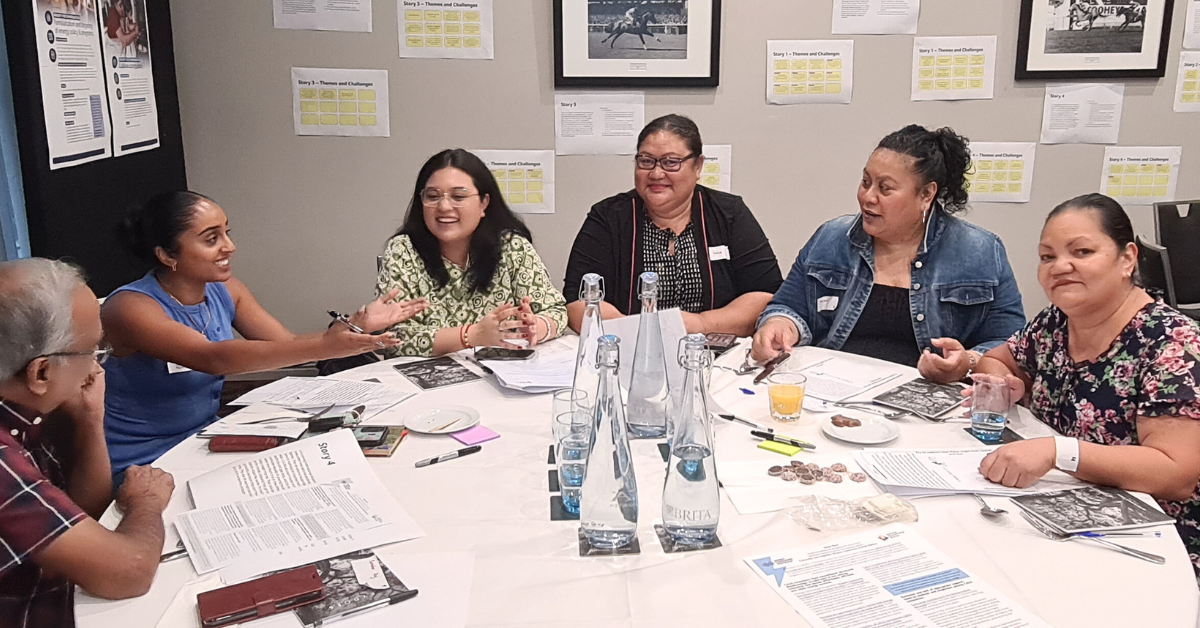This speech was delivered by Rosemary Sinclair AM at Foresighting Forum 2019 on 21 February 2019.
This year’s Foresighting Forum is focused squarely on Transforming a sector using Trust and Technology.
It’s timeliness is evident – as government implements the Consumer Data Right for the Australian economy post the Productivity Report through amendments to the Competition and Consumer Act, the Privacy Act and the Australian Information Commissioner Act; the AER works to develop the NEM Data Strategy for the Energy Security Board on behalf of the Energy Council; the CSIRO develops Australia’s National Energy Analytics Research program and industry and regulators think far more carefully about the consumer impacts of their decisions.
Our early thinking about the magnitude of this task is captured in the Framing of our approach to Foresighting Forum 2019. Discussion with our Program Development Committee led to the development by David Havyatt and the committee of a very useful Frame to help us think about the myriad of issues that need to be resolved to get the outcome we want: Data Powering Better Energy Outcomes for Consumers. The Framing is explained at page 4 of the attached Background paper and Program.
Trust and Confidence we see as an Overarching Lens. Then next four lenses are Behavioural; Regulatory; Technical and Digital. We apply these four lenses to three domains: the Individual, the Organisation and the System. This framing of lenses and domains leads to many issues to be worked on. There are examples of the Issues for all lens/domain groups at page 5 in the Background Paper with a more detailed example for the Behavioural Lens.
This thinking suggests two new capabilities are needed across the sector:
- Different approaches to decision making “under conditions of uncertainty” – we need more sophisticated approaches to the management of risk at the individual, organisation and system level. The old approach of “throwing” more capacity at whatever the problem was is no longer available because of consumer concern with cost.
- We need new knowledge about information, communications and cybersecurity technologies; deeper knowledge about consumer behaviour; more contemporary approaches to risk identification and management.
Why are we as consumer advocates interested in this work and the two new capabilities? Because energy is an Essential Service – essential to the community for comfortable homes; essential to businesses working to be competitive either domestically or very importantly internationally.
Our objective for consumer outcomes are:
- Not one dollar more than necessary
- Not one day earlier than needed
- Do no harm
Which means using data for better decisions is a key interest for us.
And there are many, many decisions to be made as the energy sector changes. When we think about the changes upon us, we see them in four categories:
- Technology, where the trends are:
- Modular
- Cost reduction
- Consumer energy technologies are now available
- Consumers:
- Have expectations as Partners in the Energy System – from Pariahs to Pawns to Partners
- Are transitioning faster than the system was expecting – “rampaging” into the market
- Are placing increasing weight on Trust – Should you? rather than Can you?
- Bring experiences from other sectors – thinking very hard about how much reliance can be placed on markets and how well regulators are performing.
- Policy and Regulation – a problem of Integrating and Intersecting domains:
- Energy and Climate Policy integration – Energy Council
- Transition Policy – Finkel Report recommendations
- Competition and Regulation – ACCC Report recommendations
- Data Policy – the Consumer Data Right legislation
- Consumer Protection – extending to Income Policy; Housing Policy; Behind the Meter Code protections; energy ombudsman services and resources
- Funding and Investment
- Consumers are questioning Value for Money
- Business Models are changing
- The balance between public/private/consumer investment is changing
- Role of Incentives – for example for energy efficiency. If the cheapest unit of the energy is the one you don’t have to use, whose role is it to help consumers?
Our compass through this thicket of issues is our advocacy strategy. We want energy for consumers that is:
- Affordable
- Individualised
- Optimised
Yesterday’s discussions at Foresighting Forum 2019 focused on Affordable and Individualised – the Consumer Data system. Today’s discussions will focus on Optimised – the policy and physical data system.
Participants in this conversation come with different objectives. Some see data driving better competition. Some see data driving better decisions by consumers. Some see data providing better consumer protection. Some see data providing better system decisions: not one dollar more than necessary; not one day earlier than needed.
At Energy Consumers Australia, we see data as both the “sunshine” (BBC) and the “oil” (The Economist) needed to re-build Trust and help all of us manage the Transition that is underway more effectively.
ENDS


